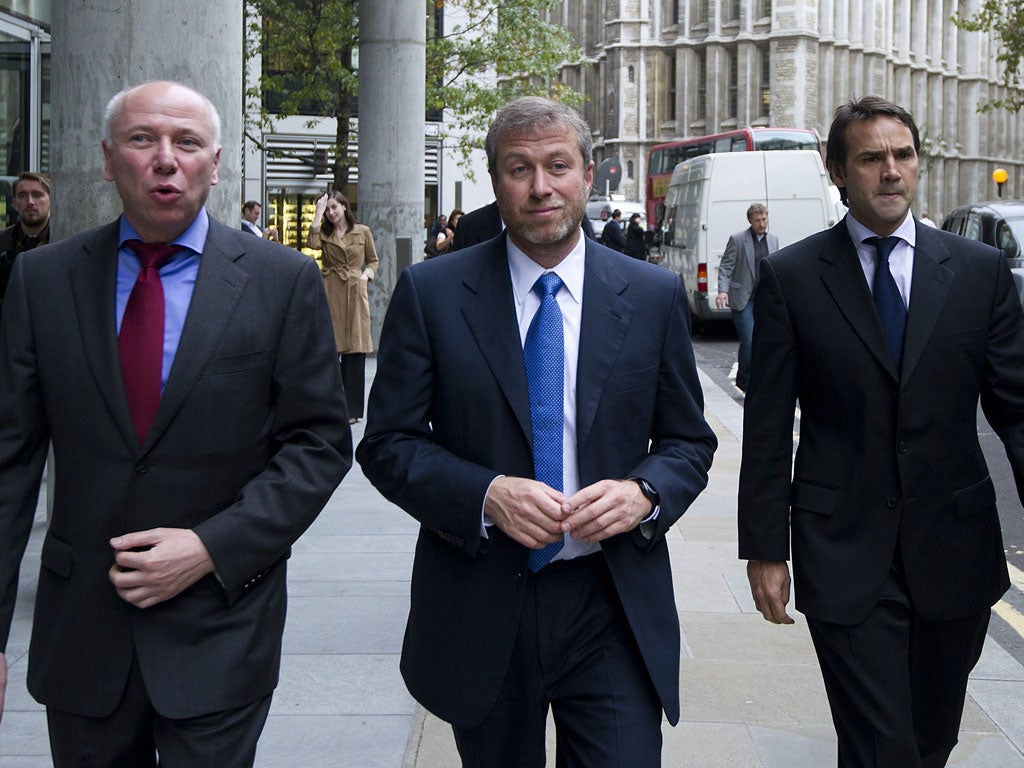Your support helps us to tell the story
From reproductive rights to climate change to Big Tech, The Independent is on the ground when the story is developing. Whether it's investigating the financials of Elon Musk's pro-Trump PAC or producing our latest documentary, 'The A Word', which shines a light on the American women fighting for reproductive rights, we know how important it is to parse out the facts from the messaging.
At such a critical moment in US history, we need reporters on the ground. Your donation allows us to keep sending journalists to speak to both sides of the story.
The Independent is trusted by Americans across the entire political spectrum. And unlike many other quality news outlets, we choose not to lock Americans out of our reporting and analysis with paywalls. We believe quality journalism should be available to everyone, paid for by those who can afford it.
Your support makes all the difference.With an aggressive voice at odds with his usually placid demeanour, Roman Abramovich was sworn into the witness box at London's Commercial Court yesterday – and, in Russian, denounced the claim for $6bn (£3.5bn) of his money as "wholly without merit".
Mr Abramovich is being sued by his former business partner Boris Berezovsky, who was also in court, over business interests he claims he was forced to sell 11 years ago. Mr Berezovsky argues that he used his influence over President Yeltsin's Kremlin in the mid-1990s to facilitate the creation of energy company Sibneft, and, as a silent partner, was entitled to 50 per cent of it until Mr Abramovich, whom he has said he thought of as a son, forced him to sell his shares at a heavily discounted price.
Mr Abramovich claims a $1.3bn payment made to Mr Berezovsky in 2001 represented his "debt of honour" in helping to establish Sibneft, but that Mr Berezovsky was never a shareholder.
In his first oral submission to the court Mr Abramovich said: "I am not his protégé, he is not my mentor."
From the end of 1999, Mr Abramovich said Mr Berezovsky's "outlook on life seemed to become detached from reality" and that "the boundaries between fact and fiction are blurred and that he would often start believing his own PR". At one point he claimed Mr Berezovsky even suggested trying to return the monarchy to Russia. "I still felt a sense of moral responsibility towards him," Abramovich added. "He still inspired in me a powerful sense of loyalty and respect because I owed so much of what I had to him."
He said he finds it "awkward to defend in England what are essentially Russian claims arising out of a uniquely Russian story" but that "Mr Berezovsky's claims are wholly without merit."
Having sat silently watching proceedings for the last four weeks, Mr Abramovich was first asked by Mr Berezovsky's barrister Laurence Rabinowitz QC to describe his early life, but his answers differed from his written statements. Mr Abramovich had claimed to have graduated from the Moscow Road Institute but said in evidence that he did not receive a degree despite studying there for four years. "I did not graduate," he said. "I did not finish it." Journalists from all over the world filled what little space in the courtroom not taken up by the two men's lawyers and associates, listening on cheap aeroplane-style headsets. Mr Abramovich wore a more expensive silver-coloured pair.
Mr Abramovich will answer questions for over a week, many pertaining to the establishment of Sibneft, the oil firm that he acquired for $100m in 1996, and sold in 2005 for $13bn. Much of the opening day's evidence was particularly detailed, but the court descended into laughter on a number of occasions.
Mr Abramovich's close associates, including billionaires Eugene Shvidler and David Davidovich, have attended almost all of the trial. Many of them will appear as witnesses, prompting Mr Berezovsky's lawyer to ask if anyone had helped Mr Abramovich prepare his evidence. Misunderstanding, Mr Abramovich replied he has had lessons in "breathing smoothly and looking at the judge", prompting laughter in the court.
The Chelsea owner –Britain's second richest man – also raised eyebrows when at the lunch break he strolled into the sandwich bar Pret a Manger and took a seat downstairs to escape the press. He appeared rattled when shown notes from a 1995 meeting involving military equipment and asked if he had been involved in weapons trading in the mid-1990s. He vigorously denied the suggestion. Mr Abramovich, worth an estimated £8.6bn and the owner of a fleet of at least five yachts, brought attention to his charitable work, and improvements in infrastructure to the state of Chukotka where he served as Governor from 2001 to 2008. He said he "never aspired to be a public figure" and is interested in "real business and the development of business strategies." Over the next week Mr Abramovich will have to explain quite how the two men's accounts of their relationship are so different. Mr Abramovich, unlike his opponent, has never been greatly concerned by public opinion, and his answers already seem much more to the point than those given by Mr Berezovsky in more than a week of evidence. Plus, he knows that the burden of proof is not on him. The case continues.

Join our commenting forum
Join thought-provoking conversations, follow other Independent readers and see their replies
Comments